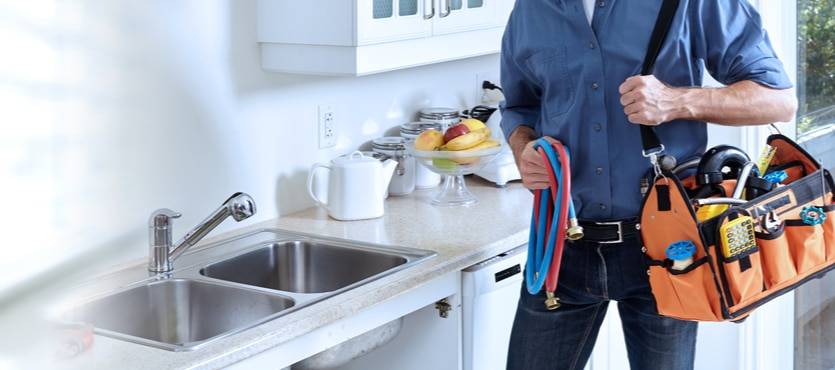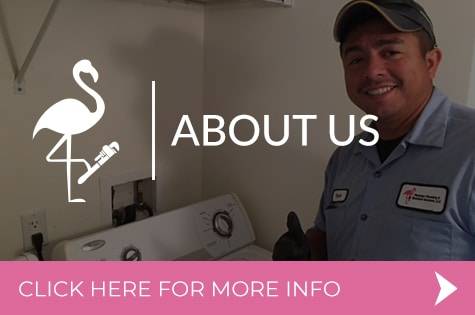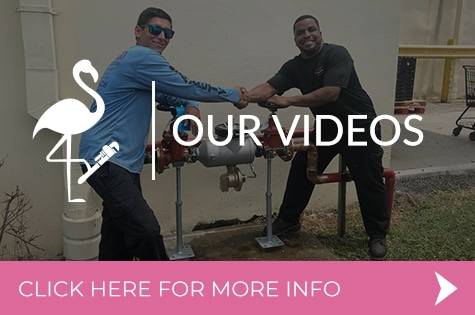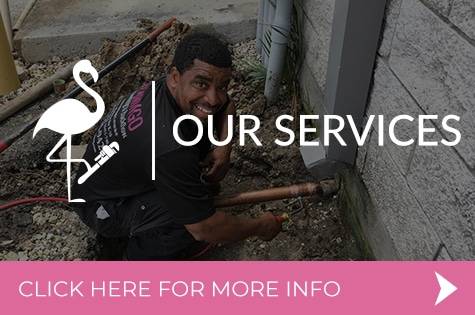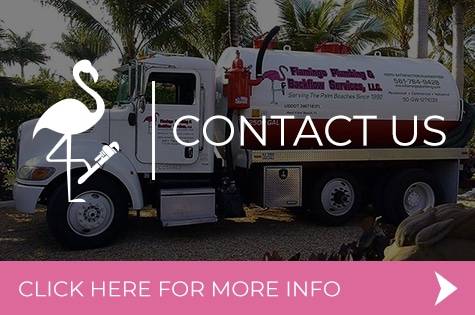Winter’s chill can wreak havoc on your plumbing. Frozen pipes may crack or burst, leading to water loss and hefty bills. Water expands as it freezes, putting pressure on pipes, joints, and fittings. If that pressure builds too much, it can cause catastrophic failures. Taking preventive measures now can save you from future headaches. Here’s how to safeguard your plumbing this winter:
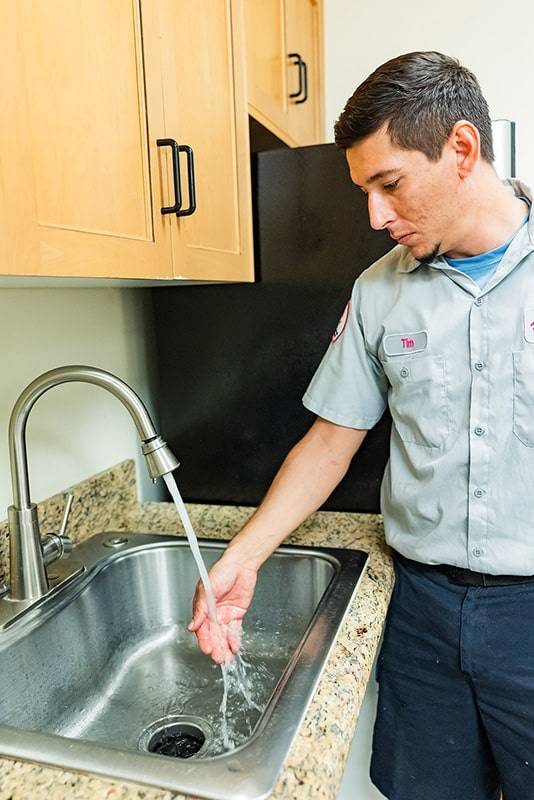 Keep Water Flowing
Keep Water Flowing
Moving water resists freezing. Let faucets drip slightly to maintain flow and relieve pressure, reducing the chance of pipes freezing and bursting. While this might slightly increase your water bill, it’s a small price to pay compared to major repairs. Pay special attention to pipes along exterior walls, as they are most vulnerable. If you’re leaving home for an extended period, set your thermostat no lower than 55°F to keep indoor pipes from freezing.
Shut Off Outdoor Faucets
Outdoor faucets are vulnerable to freezing because they’re exposed to the elements. Turn them off before the temperature drops. First, locate and shut off the interior water supply valve that controls the outdoor faucet. Then, open the faucet and the bleeder cap to drain any remaining water. Trapped water inside can freeze, expand, and crack the faucet or connected pipes, leading to costly repairs in the spring.
Insulate Exposed Pipes
Pipes in unheated areas—such as garages, crawl spaces, basements, and attics—are prone to freezing. Wrapping them in foam insulation or using heat cables provides a layer of protection, preventing heat loss and reducing the risk of freezing. For extra safety, seal any gaps or cracks near pipes to keep cold air from creeping in.
Open Cabinet Doors
Pipes under sinks, especially along exterior walls, benefit from warm air circulation. Keeping cabinet doors open allows heat from your home to reach them, lowering the risk of freezing. If a deep freeze is on the way, place a small space heater near vulnerable areas to add extra warmth.
Inspect Your Furnace
A functioning furnace is crucial for keeping your home—and your plumbing—safe in cold weather. A sudden heating failure could cause indoor temperatures to drop, putting pipes at risk. Schedule a professional furnace inspection before winter hits to ensure it’s running efficiently and reliably. Replacing air filters and checking for leaks or strange noises can help you catch potential issues early.
Disconnect Garden Hoses
Leaving garden hoses attached to outdoor spigots can lead to major plumbing problems. Water trapped in the hose can freeze and back up into the connected pipes, causing damage. Disconnect and drain all hoses, then store them indoors. If you have a frost-proof hose bib, make sure it drains completely after shutting it off.
Check Your Water Heater
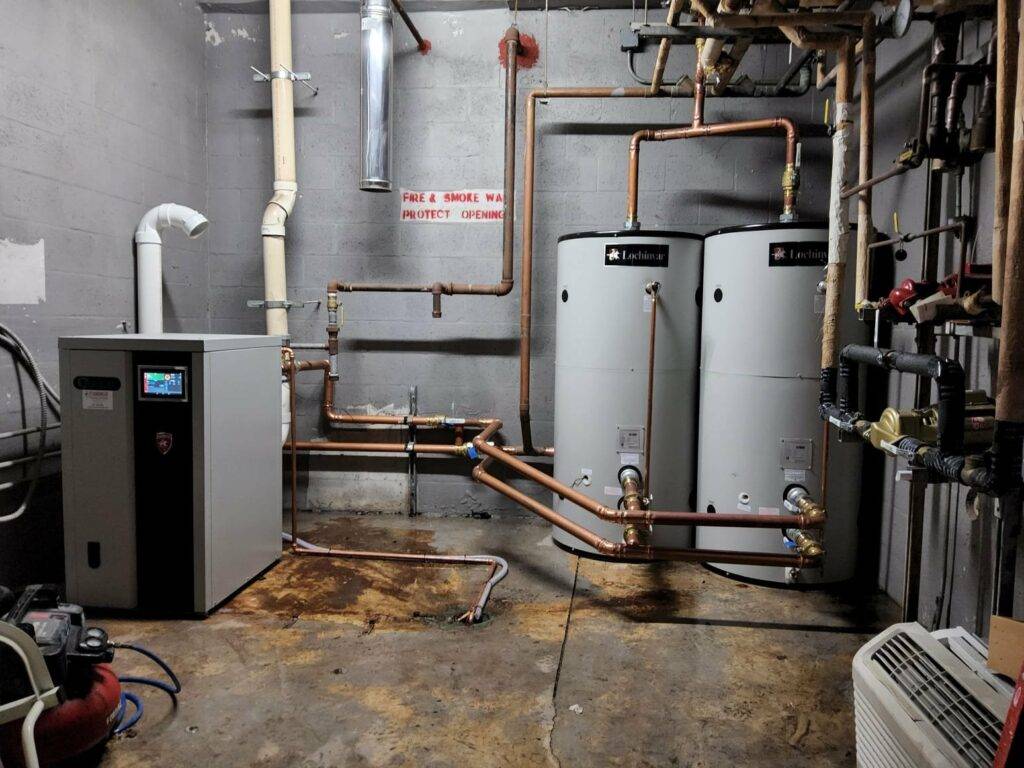
Cold weather forces your water heater to work harder. Flushing your tank removes sediment buildup, improving efficiency and extending its lifespan. If your current system struggles to keep up with demand, consider upgrading to a tankless water heater. Tankless models provide hot water on demand, reducing energy waste and ensuring a steady supply even in freezing conditions.
Install Backflow Preventers
Backflow preventers protect your water supply from contamination caused by pressure changes. Freezing temperatures can affect water pressure, making a properly functioning backflow preventer even more essential. Ensure yours is in good shape before winter sets in. If you suspect an issue, check out common backflow problems and how to fix them.
Consider Professional Drain Cleaning
Clogs are a bigger headache in winter when grease, soap, and food particles harden in cold pipes. Slow drains and backups can become serious problems. Scheduling a professional drain cleaning before the season’s worst weather hits can keep water flowing smoothly.
Regular Maintenance
Routine plumbing maintenance prevents minor issues from turning into costly emergencies. Here’s a checklist of key winter maintenance tasks:
- Inspect and insulate exposed pipes
- Check for leaks and drips
- Test your sump pump
- Ensure your water heater is running efficiently
- Examine your backflow preventer
- Clean drains and garbage disposals
- Verify outdoor faucets are properly winterized
Scheduling regular plumbing maintenance ensures your system is ready to handle winter’s challenges.
Winter Plumbing Problems? We Have You Covered
When pipes freeze or plumbing systems fail, quick action is key. A burst pipe or blocked drain can lead to extensive damage if not handled immediately. Our expert team offers fast, reliable solutions, including leak detection, toilet repairs, and shower repairs. Whether you need emergency repairs or preventative maintenance, our team is ready to help. Call us today to make sure your plumbing is winter-ready and avoid costly surprises when temperatures drop.

